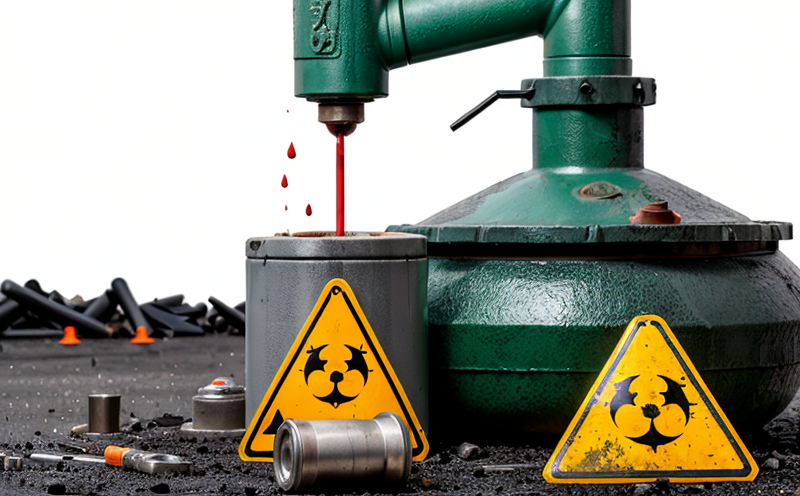EN 50267 Toxicity Testing of Combustion Gases from Cables
The European standard EN 50267 outlines a comprehensive methodology for assessing the toxicity of combustion gases produced by the insulation materials used in cables. This testing is crucial for ensuring that electrical installations comply with stringent safety regulations and contribute to a healthier environment. The primary objective of this test is to evaluate the potential harmful effects of toxic substances released during the combustion of cable insulation.
The standard specifies detailed procedures, including sample preparation, apparatus requirements, and acceptance criteria. Compliance officers and quality managers must be aware that the tests are conducted under controlled conditions to ensure accurate results. The process involves igniting a specified length of the cable’s insulation material in an oxygen-free environment and measuring the released combustion gases for their toxic content.
The test protocol is designed to simulate real-world scenarios where cables might experience combustion, such as during fires or electrical faults. By adhering to this standard, industries can ensure that their products meet stringent safety requirements while minimizing environmental impact. This testing is particularly important in sectors like construction, transportation, and energy, where the integrity of electrical systems is paramount.
The acceptance criteria for EN 50267 are based on defined thresholds for various toxic gases such as carbon monoxide (CO), hydrogen cyanide (HCN), and others. These thresholds are set to protect human health and ensure that the combustion products from cables do not pose unacceptable risks in case of a fire.
Quality managers and R&D engineers should be aware that this testing is essential for product certification and compliance with international standards like ISO and IEC. The test results provide critical data for improving cable designs and materials, ultimately leading to safer electrical installations.
The methodology used in EN 50267 involves precise measurement techniques, ensuring that the results are reliable and reproducible. This includes the use of advanced gas analysis instruments capable of detecting even trace amounts of toxic gases. The apparatus required for this test is specifically designed to ensure accurate measurements under controlled conditions.
The process begins with careful selection and preparation of cable samples. These samples are then subjected to combustion in a specialized chamber, allowing for the precise measurement of released gases. The results are analyzed using international standards such as ISO 13679, which provides guidelines for the analysis of toxic substances in combustion products.
The importance of this testing cannot be overstated, especially given the increasing demand for sustainable and safe electrical installations. By adhering to EN 50267, industries can ensure that their products meet stringent safety requirements while minimizing environmental impact. This testing is particularly important in sectors like construction, transportation, and energy, where the integrity of electrical systems is paramount.
The standard also emphasizes the need for continuous improvement in cable materials and designs to reduce the risk of harmful emissions during combustion. Compliance with EN 50267 ensures that products are not only safe but also contribute positively to environmental sustainability.
Industry Applications
- Cable Manufacturers: To ensure compliance with safety regulations and improve product quality.
- Construction Industry: For the evaluation of fire safety in building materials.
- Energy Sector: To enhance the safety of electrical installations and reduce environmental impact.
- Transportation Industry: To ensure safe operation of vehicles with reliable electrical systems.
Eurolab Advantages
At Eurolab, we offer comprehensive EN 50267 toxicity testing services tailored to meet the specific needs of our clients. Our state-of-the-art laboratories are equipped with the latest technology and expertise in this field.
- Precision: Utilizing advanced gas analysis instruments for precise measurement of toxic gases.
- Accuracy: Ensuring reproducible results that meet international standards.
- Experience: A team of highly skilled and experienced professionals in cable testing.
- Compliance: Providing comprehensive support to ensure compliance with EN 50267 and other relevant standards.
We understand the importance of accurate and reliable data for product certification and improvement. Our services are designed to help your organization meet regulatory requirements while enhancing product safety and sustainability.
Environmental and Sustainability Contributions
Compliance with EN 50267 contributes significantly to environmental protection by ensuring that the combustion products from cables do not pose unacceptable risks. This testing helps in identifying potential hazards early, allowing for timely interventions and improvements.
The results of this testing are instrumental in driving innovation within the cable industry. By identifying toxic substances released during combustion, manufacturers can work towards developing safer and more sustainable materials. This shift towards environmentally friendly products is crucial in reducing the overall environmental footprint of electrical installations.
Furthermore, the data obtained from EN 50267 testing supports the development of new safety standards and regulations. This continuous improvement process ensures that industries are always moving towards safer and greener practices.
The use of sustainable materials and processes in the production of cables is a key focus area for many companies today. By adhering to EN 50267, these companies can contribute positively to environmental sustainability while maintaining high safety standards.





